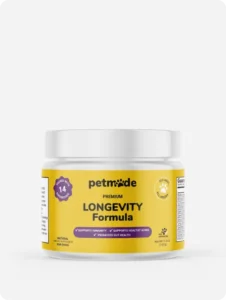Can Dogs Drink Flavored Water?
Can dogs drink flavored water? While it might seem like a simple way to keep your pup hydrated, not all flavored water options are safe for your four-legged friend. The good news is that with the right approach and natural ingredients, you can make water more appealing to your dog without risking their well-being. Let’s dive into everything you need to know about flavored water for dogs, from safe options to potential risks and smart alternatives.
Do Dogs Need Flavored Water?
Plain, fresh water remains the gold standard for keeping your furry friend healthy and hydrated. Most dogs need about 1 ounce of water per pound of body weight daily, though active pups or those in warm weather may need more.
Some dogs might turn their nose up at their water bowl, showing signs of dehydration like sticky gums or reduced skin elasticity. In these cases, safe flavor enhancements could help encourage better drinking habits. However, it’s essential to know what added to water is good for dogs to drink before making any changes to their routine.
Risks of Artificially Flavored Water for Dogs
When pet parents ask, “Can dogs have flavored water?” they’re often thinking about store-bought options. Unfortunately, most commercial flavored waters pose significant risks to our canine companions. Many contain harmful ingredients that could turn a well-meaning hydration boost into a health hazard.
Common problematic ingredients include:
- The sweetener xylitol (also listed as “birch sugar” or “wood sugar”), which should always be avoided in any pet products
- Other artificial sweeteners like sucralose (Splenda), acesulfame potassium (Ace-K), and stevia extracts can disrupt digestive balance
- High sodium ingredients such as sodium citrate, potassium chloride, and salt that can worsen thirst
- Synthetic flavorings listed as “natural and artificial flavors,” “flavor enhancers,” or “proprietary blends” on labels
- Common preservatives like sodium benzoate, potassium sorbate, and citric acid that may cause tummy troubles
Even products marketed as “natural” can contain concentrated fruit juices or acids that aren’t suitable for dogs. That’s why it’s crucial to understand safe alternatives for flavor water for dogs.
What Can Be Safely Added to a Dog’s Water?

If you’re looking to enhance your pup’s water, several natural options can make their bowl more appealing without compromising their health. Here are five safe and beneficial ways to flavor your dog’s water:
1. Bone Broth (Unsalted & Homemade)
Is bone broth good for dogs? Absolutely! A properly prepared bone broth offers more than just flavor – it provides beneficial minerals that support overall health. When making bone broth for your pup:
- Skip the salt and seasonings
- Use only dog-safe ingredients
- Let it cool completely before serving
- Store unused portions in ice cube trays
2. Cucumber-Infused Water
Adding a few cucumber slices to your dog’s water creates a light, refreshing taste that many dogs enjoy. This natural option works especially well during warm weather because:
- It adds minimal calories
- Provides light hydration support
- Creates an inviting scent
3. Coconut Water (Limited)
Plain, unsweetened coconut water can be a refreshing treat for your pup. However, moderation is key:
- Offer small amounts only
- Choose 100% pure coconut water
- Watch for any digestive changes
- Use as an occasional treat rather than a daily addition
4. Ice Cube Variations
Transform plain ice cubes into engaging treats that encourage hydration:
- Freeze small amounts of bone broth
- Create fruit-infused ice cubes using dog-safe fruits
- Make single-ingredient frozen treats
- Use them as cooling rewards during play
5. Nutrient Support for Hydration
Supporting your dog’s hydration goes beyond just adding flavor. The right balance of nutrients helps maintain proper fluid levels and supports overall vitality. A holistic approach to hydration includes:
- Natural electrolytes from whole food sources
- Ingredients that support healthy digestion
- Antioxidants that help maintain cellular health
- Probiotics for optimal nutrient absorption
When Flavored Water Benefits Dogs
While plain water should always be your first choice, certain situations might call for flavored alternatives. Your pup might benefit from enhanced water if they fall into any of these categories:
The selective sipper who regularly ignores their water bowl would appreciate flavor water for dogs. These pups often need extra encouragement to maintain proper hydration levels.
Senior dogs sometimes lose their natural thirst signals, making them prone to dehydration. A mild flavor boost can help them maintain better drinking habits.
Dogs bouncing back from illness might need additional motivation to drink. Natural water enhancers can make staying hydrated more appealing during recovery.
Introducing Flavored Water Safely
When introducing any new water enhancement, take it slow and steady. Here’s your step-by-step guide to success:
Start small by adding just a splash of your chosen flavoring to a separate water bowl. This lets you monitor how your pup responds while maintaining access to regular water.
Watch for signs that your dog enjoys or dislikes the flavored option. Some pups might need time to adjust to new tastes.
Keep portions modest – flavored water should complement, not replace, regular water intake. Too much of even a good thing isn’t ideal.
Always maintain a bowl of fresh, clean water alongside any flavored options. This gives your pup choices and ensures they stay properly hydrated.
Clean water bowls daily, especially when using natural enhancers. This prevents any buildup that could affect the water’s taste or safety.
Conclusion
So, in the end, can dogs drink flavored water? Each dog has unique preferences and needs. However, by sticking to natural, dog-safe options and introducing them gradually, you can find safe ways to make hydration more appealing for your furry friend.
Focus on simple, wholesome additions rather than complicated mixes. Most dogs respond well to basic enhancements like homemade bone broth or cucumber-infused water. These provide gentle flavor without unnecessary additives or risks.
Monitor your dog’s response to any new water additions and adjust accordingly. The goal is to support healthy hydration habits while keeping your pup safe and happy. With patience and attention to your dog’s preferences, you can find the perfect balance that works for your four-legged friend.
Safe options include unsalted homemade bone broth, cucumber slices, or plain coconut water. Use ice cube variations with frozen broth for added interest. Always introduce new additions gradually and keep a bowl of fresh water available.
Select fruits like apple, watermelon, and blueberries are safe for infusing water. Avoid grapes, raisins, and citrus fruits. Always remove fruit pieces after infusing and start with small amounts to test your dog’s reaction.
No, flavored water should be an occasional treat rather than a daily habit. Keep fresh, plain water available at all times. Use flavored options only when needed to encourage hydration or as special refreshment.
No, sports drinks aren’t safe for dogs. They contain high levels of sugar, sodium, and artificial ingredients that can cause digestive issues. Stick to plain water or dog-safe natural alternatives for hydration.
Advertisement. This site offers health, wellness, fitness and nutritional information and is designed for educational purposes only. You should not rely on this information as a substitute for, nor does it replace, professional medical advice, diagnosis, or treatment. If you have any concerns or questions about your health, you should always consult with a physician or other health-care professional. Do not disregard, avoid or delay obtaining medical or health related advice from your health-care professional because of something you may have read on this site. The use of any information provided on this site is solely at your own risk.




















